Small sticker points to major problem, calling out landlords and Airbnb amid rental crisis
A sticker that’s popped up in Melbourne has caused a stir for calling out a major problem that is crippling Australians.

It is not unusual to see a sticker or 10 plastered on street poles, but one that popped up in Melbourne has caused a big stir for calling out a major problem that is crippling Australians.
The small sticker, which was spotted on a traffic light in Melbourne, takes aim at homeowners who are worsening the national housing crisis by listing their properties as short-term Airbnb stays rather than long-term rentals.
The sticker, shared to social media, mockingly states: “You wouldn’t open an Airbnb in a housing crisis” – a spoof of the mid-2000s ‘Piracy. It’s a crime.’ public service announcement that would play before movies.
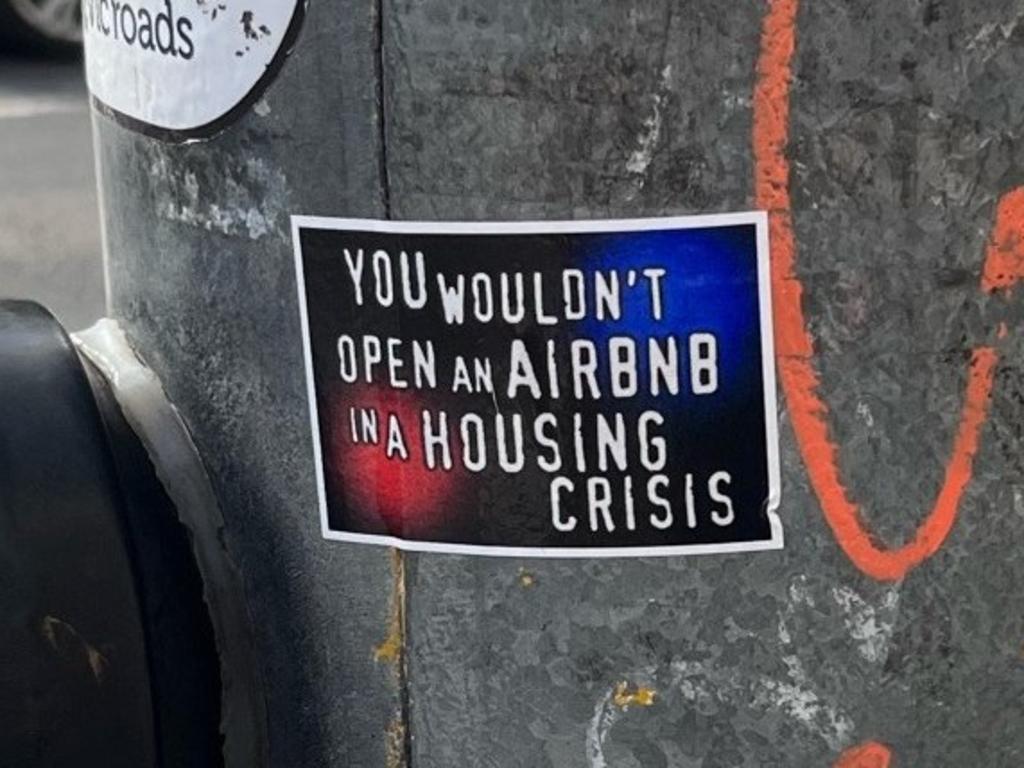
Images of the sticker have been shared across social media, with many quick to praise the “genius” DIY PSA and requesting copies to stick around their suburbs and on lockboxes in their own apartment complexes.
And while some put their own spin on the message, others were more critical of the sticker taking aim at landlords and Airbnb.
“You wouldn’t incentivise opening an Airbnb by making it less onerous and more profitable than renting out your property,” someone replied.
“Course they would,” another hit back. “The ‘f**k you, got mine’ mindset is getting stronger.”
“If I had my way I’d ban their [Airbnb] whole operation overnight.”
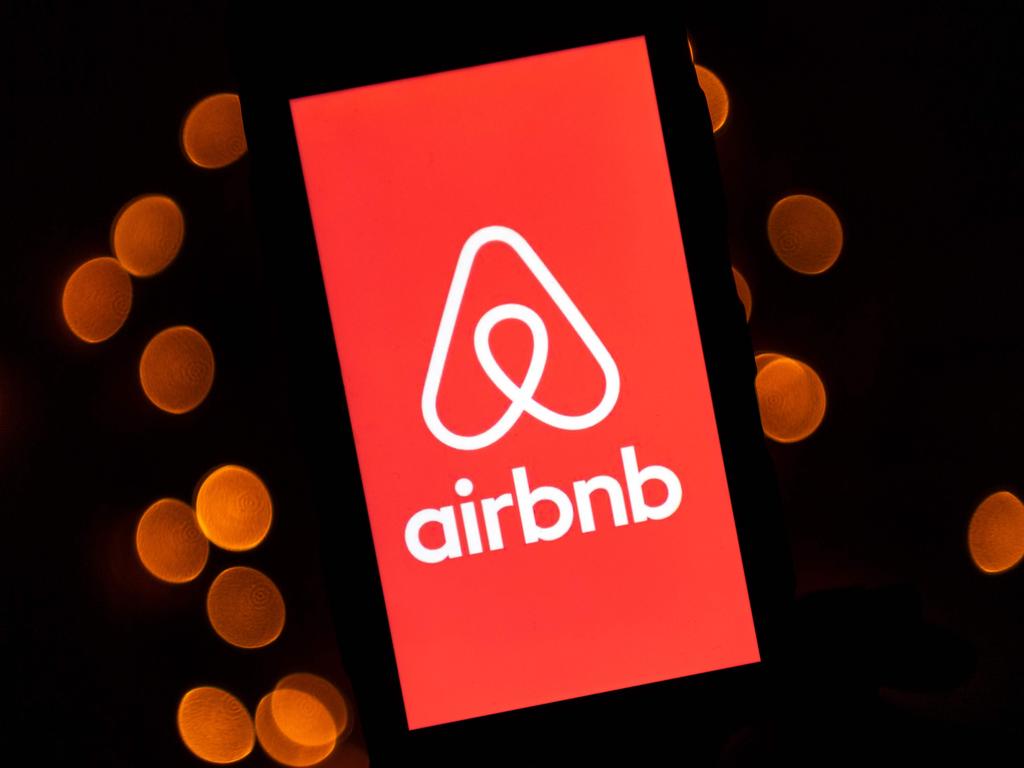
The issue of short-term holiday letting and the growth of Airbnb across Australia and its eating-up of potential long-term rentals is a well-worn battleground in Australia.
In Victoria, specifically, there have been calls for the Andrews government to introduce tighter regulation on holiday letting through Airbnb in a number of ways, even though the holiday giant dismisses claims it is to blame for the worsening crisis.
Among the proposals are calls to cap the number of nights landlords can list their properties on such platforms, impose a “tourist tax” – as has been done in places overseas – or empower councils to charge property owners higher commercial rates.
Unnamed Labor MPs told The Age newspaper the party needed to make “bold” changes to lower the pressure on rents and help secure votes for years to come – particularly given the number of marginal seats close to the Mornington Peninsula affected by the lack of affordable rentals.
The area has been overrun by Airbnbs, with almost 5000 homes for rent on the platform in March, up from about 4000 last year, according to insideairbnb.com.
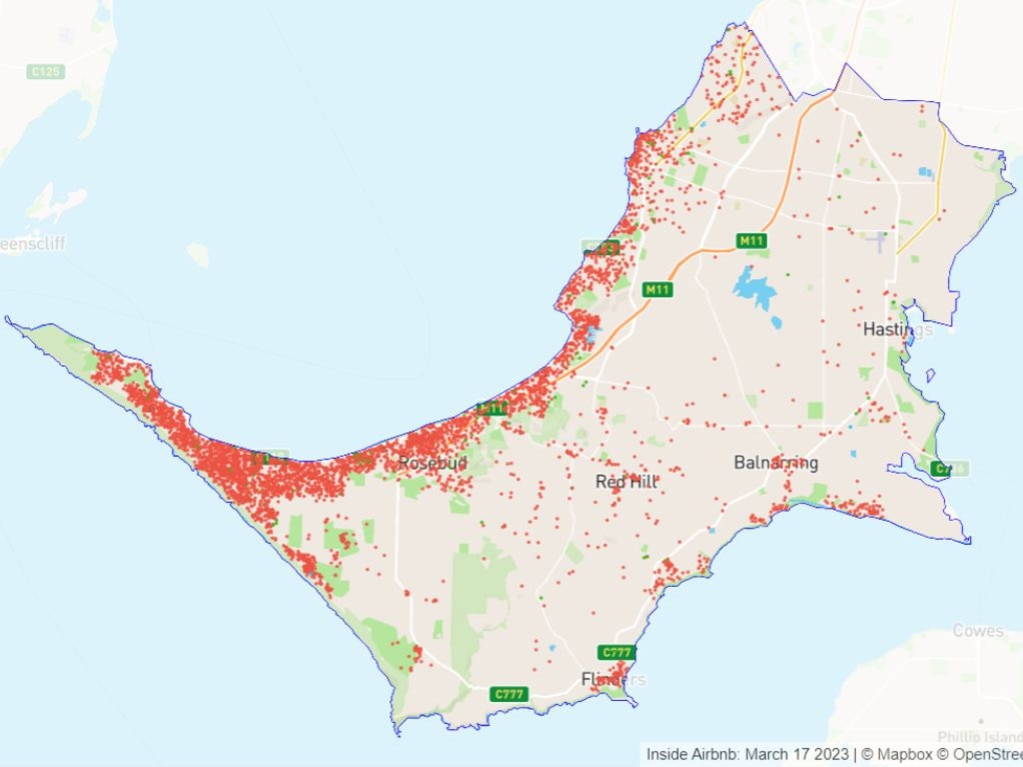
The calls come as Victorian renters face an extremely tight rental market, with vacancy rates reaching a record low of 0.8 per cent in Melbourne in April – which is one of the better rates recorded across the country – and as new rental listings dropped by 18.9 per cent.
The only capital city to have rental vacancy above one per cent is Canberra, at 1.6 per cent. Meanwhile, Adelaide has the tightest rental market with just 0.3 per cent vacancy. Perth is not far behind, at 0.4 per cent in April.
Sydney’s new listings fell by 17 per cent in April and 5.1 per cent in the past year while Melbourne dropped by 20.8 per cent in the past month and 17.9 per cent in the past year, according to PropTrack.
And the rental crisis may only get worse if Airbnb remains as lucrative an option for landowners as it has been without stricter regulation.
In November 2021, the NSW government introduced regulations to limit the time a property can be on the market to 180 days a year. The Victorian Greens have called on the Andrews government to go further and introduce a 90-day cap.
A similar, “tourism tax” has been introduced in cities overseas, where a small payment is added to an Airbnb guest’s bill in certain tourism hot spots each night to funnel money back into local communities’ infrastructure.
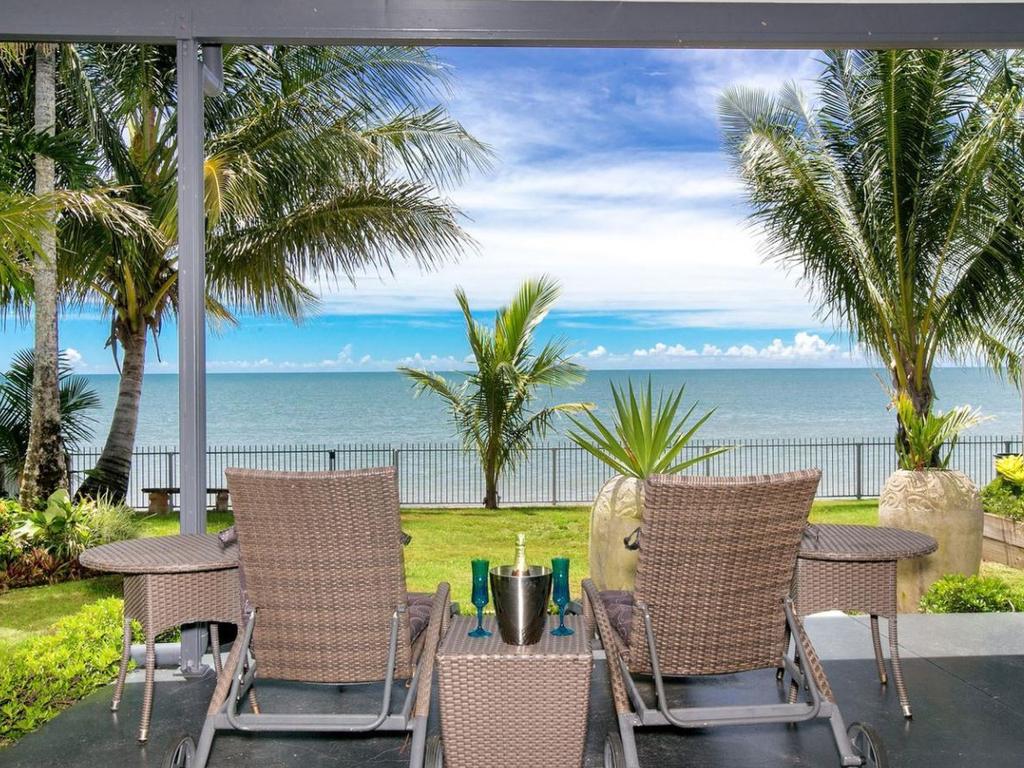
In fact, Airbnb told The Age that such a statewide tourism levy was the preferred way to regulate the industry, because it was more consistent than a council-by-council approach.
“We believe tourism levies are a fair and sustainable way to raise revenue for local communities, especially in areas of high tourism, as they broaden the revenue base without imposing an additional burden on local ratepayers or businesses,” Airbnb Australia and New Zealand’s head of public policy Michael Crosby told the newspaper .
Airbnb country manager for Australia and New Zealand Susan Wheeldon told news.com.au the platform had itself proposed a series of measures to “help build stronger communities, foster sustainable tourism growth, and equip governments across Australia with tools to help address important issues, such as housing affordability and amenity”.
It included a statewide registration scheme to document new listings, introducing consistent Codes of Conduct for guests, hosts, and communities, and support for government reviews of eviction protections.
“Airbnb is keen to work together with a broad range of stakeholders and help play a part in helping to provide meaningful solutions and tackle the issue of housing supply and affordability,” Ms Wheeldon said.
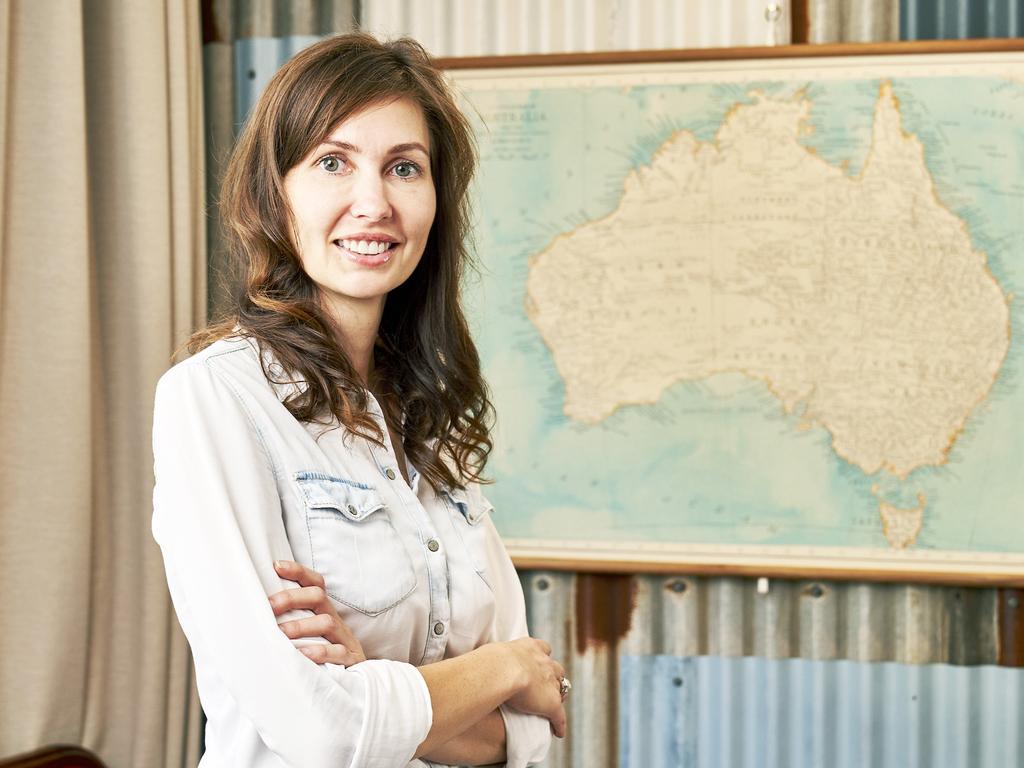
“While short term rentals generally comprise a tiny proportion of the overall property market, we’re keen to keep finding ways that we can make a positive contribution to this important issue.”
But landlords may be made doubly unhappy by any tighter regulation or additional holiday-maker levy, after the Andrews government’s latest budget slugged owners of multiple properties with higher land taxes to pay down the state’s exorbitant Covid debt.





